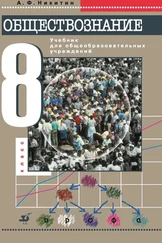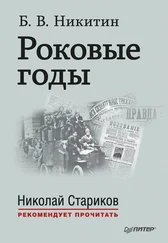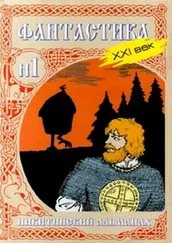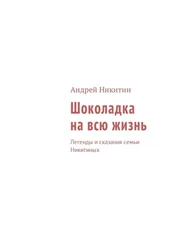The way Vera talked wasn’t exactly confusing, but neither was her account neat and tidy. As she related a particular episode she might leap forward a couple of years or go back in time just to pick up an important detail. At times I didn’t confine myself to the role of listener, and then our conversation would stray far from Larissa’s fate. I’ve already forgotten many details of her story, and some I don’t want to remember.
‘It began when Larissa was abducted. Ten years ago.’
‘In Kiev?’ I asked in surprise.
‘No, Moscow. She was kidnapped from a competition.’
At which point I understood it hadn’t begun ten years ago but much earlier.
Vera and Larissa had looked alike from earliest childhood. But they were alike only on the outside. Larissa seemed older. She was reserved and only reluctantly did she let her parents and relatives close, whereas the role of beloved child was performed consummately by Vera. When they were around five years of age the girls began to study music. With Vera it was immediately obvious that while she would have loved to have pleased her parents she was little inclined towards the fine arts, so much so that to expect anything from her in this area was simply inhumane. And they left her in peace. With Larissa it was more complicated. It was discovered that the little girl had perfect pitch. At a music-school audition the commission members played various musical phrases, some quite complicated, and the child was able to reproduce them quickly and without mistakes. Even then she had a powerful hand that seemed designed for playing the violin. She was assigned to a violin class. But the problem wasn’t merely that Larissa couldn’t bear the instrument, it was that she quietly but passionately detested this whole business of music, and she resisted it in every way she could.
The war between parents and child lasted nearly four years and ended in total victory for Larissa. Her parents surrendered. Over time Larissa had grown into a hardened warrior. She now had a plan of which her victory over music was the first point. To fulfill the second point she enrolled in judo classes. By the time she finished school Larissa had battled her way to black belt. Vera tagged along with her sister to the sports hall a few times, but the sight of Larissa in a judogi didn’t inspire her. And the throws, grapples, strikes, defenses, they didn’t scare Vera off, but they didn’t draw her in either. Hers was a clear, analytical intellect, and she had a tangibly abstract mind. When they finished school, Vera enrolled in the university physics department; Larissa in the Institute of Physical Education.
In early September 1993, before Vera had even learned to navigate the tangled corridors of the laboratory building at Kiev’s physics department, her sister went to Moscow for an international judo competition. She didn’t come back. The trainers and the girls on her team neither knew nor understood what had happened. Larissa had been with everyone else in the gymnasium, she was seen in the changing room, and someone even noticed her walking towards the exit of the sports complex. Alone. But Larissa wasn’t seen back at the hotel. Naturally they informed the police of her disappearance. And the Moscow police—despite their reassurances along the lines of ‘Don’t worry, your girl will turn up. The little wrestler’s probably gone on a spree with the men. Give her a week, and she’ll be back without any help from us. What’s the hurry?’—reluctantly took the statement. Apparently they even took it upon themselves to search for Larissa. But their searches didn’t turn anything up.
In the end, the Russian guardians of law and order were at least partly right. Larissa did turn up by herself. Exactly three years later, in September 1996, she telephoned home. Nedremailo picked up the receiver.
‘Papa, this is Larissa. I’m in Grozny. Don’t worry, everything’s okay.’
It’s possible that Larissa said more, but the professor didn’t last that long. He collapsed in a dead faint after her first few words.
All that time the family had been searching for Larissa. It hadn’t taken long to find out that she was in Chechnya. There had been a phone call. A man had rung. He spoke Russian but with a very heavy Ukrainian accent. During the course of the conversation, Nedremailo switched to Ukrainian, but the caller stated right away that he didn’t understand that language. His speech was vague and muddled somehow. He didn’t ask for money in so many words, but he implied that Nedremailo’s daughter would require assistance to get away. He firmly advised against contacting the authorities, but Nedremailo ignored this advice. He was accustomed to relying on the state, so to the Russian special services he added the Ukrainian Security Service, the Church and the Ukrainian Ministry of Foreign Affairs. He gave no peace to the Russian and Ukrainian ambassadors, the Red Cross people or any international organization he could get hold of. But to no avail. Nedremailo was forever traveling to Moscow, and twice he tried to go to Chechnya, but he wasn’t allowed beyond Mosdok a few kilometers from the border. Nedremailo told everyone around him that he was hopeful, but he hesitated to ask himself just what he was hoping for.
After the first phone call from Larissa several others followed. The war was over, and she and her husband were getting ready to leave Chechnya. She needed assistance and not just money. Paying all the fees and preparing to move took around a year. Then Larissa and Vakha bought half a house outside Moscow and settled in Russia.
Nedremailo went to see his daughter several times and came back looking glum. His child’s life in Russia was not working out. The authorities didn’t want to register them as residents, there weren’t any jobs, the neighbors watched them like wolves and once a week—as regular as clockwork—the cops would come to check their documents. And if the cops urgently needed money they might even drop by after hours. Vakha had friends in the next village. When these friends were banged up they knew they had to move on. They sold their half of the house and moved to Odessa.
In Odessa they lasted longer, but they encountered the same problems—the police, neighbors, work. Vakha needed to recuperate. The health and nerves of the former Chechen fighter were absolutely shot. Once, when Vera and her father went to visit Larissa, she saw how the militant mujahid went about decapitating a chicken destined for the lunch broth. They were living in a typical city apartment, so Vakha decided it would be easier to deal with the bird in the bathroom. As there wasn’t a suitable axe to be found the deed had to be done with a knife. But the Ukrainian cock was extremely tenacious, and Vakha the Mussulman made a terrible butcher. Not yet done for, the cock escaped from under the knife and flew with a screech into the room. Spraying blood all over the walls and ceiling, it fled on to the balcony where it leaped across to the neighbors, frightening their children and grandmother half to death. The bird carried on squawking until, in a swift and practiced movement, the neighbor wrung its neck.
For a long time Vakha sat mutely on the sofa, his face so pale it was blue-grey. He rocked to and fro, at times lowering his head below his knees. Then he looked at Vera and shrugged. ‘I told her I couldn’t do it. I can’t bear the sight of blood.’ At that moment Vera caught sight of her sister’s face. An expression of dark satisfaction flashed across it and immediately disappeared.
The affair with the cock ended in the usual way—the quarrel with the neighbors, the police, the document check. The policeman from the precinct shuffled slowly between bathroom and balcony, scrutinizing the bloodstains and waggling his brows in consternation. ‘Whose throat have you slashed here? You’d do well to come clean voluntarily—we’ll find out anyway.’ Instead of the usual fifty grivnas they had to pay seventy, all that they had.
Читать дальше








